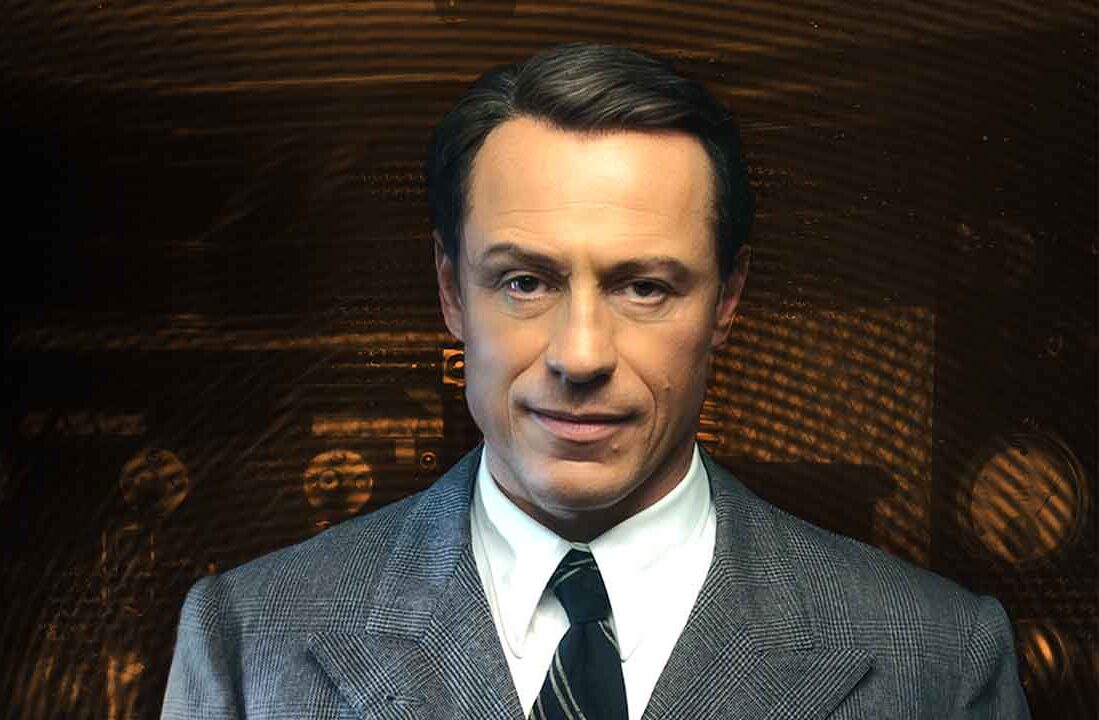
MARCONI – THE MAN WHO CONNECTED THE WORLD
MONDAY, MAY 20 AND TUESDAY, MAY 21, 2024, IN PRIME TIME ON RAI1
A production by Stand by Me in collaboration with Rai Fiction
ON THE 150TH ANNIVERSARY OF THE BIRTH OF GUGLIELMO MARCONI
AND THE 100TH ANNIVERSARY OF RADIO RAI
“MARCONI – THE MAN WHO CONNECTED THE WORLD”:
THE EVENT MINISERIES STARRING STEFANO ACCORSI DEDICATED
TO THE FAMOUS ITALIAN INVENTOR AND ENTREPRENEUR
Produced by Simona Ercolani, directed by Lucio Pellegrini, the series brings to new generations the modernity of Marconi’s character – the genius of wireless, the father of modern telecommunications – and the contemporaneity of his thought and vision.
With Ludovica Martino (Isabella Gordon), Nicolas Maupas (young Guglielmo Marconi),
Alessio Vassallo (Achille Martinucci), Flavio Furno (Giuseppe Bottai),
Cecilia Bertozzi (Maria Cristina Marconi), Massimo de Santis (Umberto De Riva)
and with Fortunato Cerlino in the role of Benito Mussolini.
Rome, xx April 2024 – “Marconi – the man who connected the world” starring Stefano Accorsi arrives on Rai1 in its world premiere: the first miniseries dedicated to the famous Italian inventor and entrepreneur, father of wireless telegraphy, inventor of the radio and pioneer of modern telecommunications, Nobel Prize for Physics in 1909. A production by Stand by Me in collaboration with Rai Fiction, produced by Simona Ercolani, directed by Lucio Pellegrini, made on the occasion of the 150th anniversary of Marconi’s birth (Bologna, April 25, 1874) and the 100th anniversary of the birth of Radio Rai (October 6, 1924), airing Monday, May 20 and Tuesday, May 21 in prime time.
Written by Salvatore De Mola and Bernardo Pellegrini, with historical consultancy by Barbara Valotti, director of the Marconi Museum in Pontecchio (Municipality of Sasso Marconi, Bologna) and the Marconi family, the series blends the historical-biographical genre with a spy story, capturing the contemporaneity of Marconi’s vision and the modernity of his character: inventor, scientist, entrepreneur, who made history in Italy and the world, father of technologies that changed human life. A young prodigy who, through his ingenuity and determination, managed to create revolutionary inventions and bring them to market, gathering funding and orders around the world, accumulating successes, awards, honors, and – especially in Italy – public positions, achieving a level of global fame.
The fiction portrays this extraordinary figure with a new perspective, focusing particularly on the last year of his life: in 1937 Guglielmo Marconi (Stefano Accorsi) divides his life between his laboratory and the yacht Elettra where he lives with his wife Maria Cristina (Cecilia Bertozzi) and his beloved daughter Elettra. During those months, Marconi is a man troubled by a deep internal conflict. His unwavering faith in science as a tool for humanity’s progress clashes with the worsening international relations, Italy’s growing isolation, and the progressive deterioration of his relationship with Mussolini (played by Fortunato Cerlino), which until then had been based on mutual convenience, increasingly hard for him to bear. Marconi indeed dislikes the regime’s insistence and the press’s insinuations about the development of a hypothetical secret weapon.
The narrative begins with an interview given by Marconi to the Italian-American journalist Isabella Gordon – a fictional character played by Ludovica Martino. Isabella Gordon actually collaborates with the regime, reporting information about Marconi’s work to her lover and OVRA official Achille Martinucci (Alessio Vassallo), the operative arm of the Minister of National Education Giuseppe Bottai (Flavio Furno). Through the thread of the interview, the human and scientific epic of the inventor is also retraced, starting with the early experiments of an 18-year-old Marconi (Nicolas Maupas). On the Celestini Hill at Villa Griffone, the family’s historic residence, the very young Guglielmo made the first wireless transmission in 1895, marking the beginning of telegraphy. The story also includes other extraordinary feats such as the first transoceanic transmission in history, made in 1901, between Cornwall and Canada.
Filmed between Emilia-Romagna and Lazio, the series boasts shots in the actual locations of the events and iconic spaces of Italy’s historical heritage, from the aforementioned Villa Griffone, now home to the Guglielmo Marconi Foundation – Marconi Museum, to Palazzo Venezia (where the Map Room, opened only on rare occasions, was made available for the filming), from Villa Mondragone to Villa Torlonia, and the Historical Museum of Communication. To best recreate the scenes on the Elettra yacht, Marconi’s house-laboratory which no longer exists, a 27-meter-long model was reconstructed in the studio.
“Marconi – the man who connected the world” is a production by Stand by Me in collaboration with Rai Fiction, with the support of MIC – Directorate General Cinema and Audiovisual, with the support of the Marconi Foundation and the patronage of the National Committee for the Celebrations of the 150th anniversary of the birth of Guglielmo Marconi. International distribution by Rai Com. Written by Salvatore De Mola and Bernardo Pellegrini. Stand by Me executive producer Teresa Carducci. Stand by Me delegated producers Riccardo Chiattelli, Tommaso Vecchio. Rai producers Leonardo Ferrara, Alessandro Corsetti, Emanuele Cotumaccio. Produced by Simona Ercolani. Directed by Lucio Pellegrini.
“In radio we have an essential tool to bring the peoples of the world closer together, to make their voices, needs, and aspirations mutually heard. The meaning of these modern means of communication is thus fully revealed: a broad channel for the development of our relationships is now available to us, we just need to follow its course in a spirit of tolerance and sympathy, eager to use the achievements of science and human ingenuity for the common good.”
Guglielmo Marconi’s radio speech – Chicago Tribune Forum, March 11, 1937





